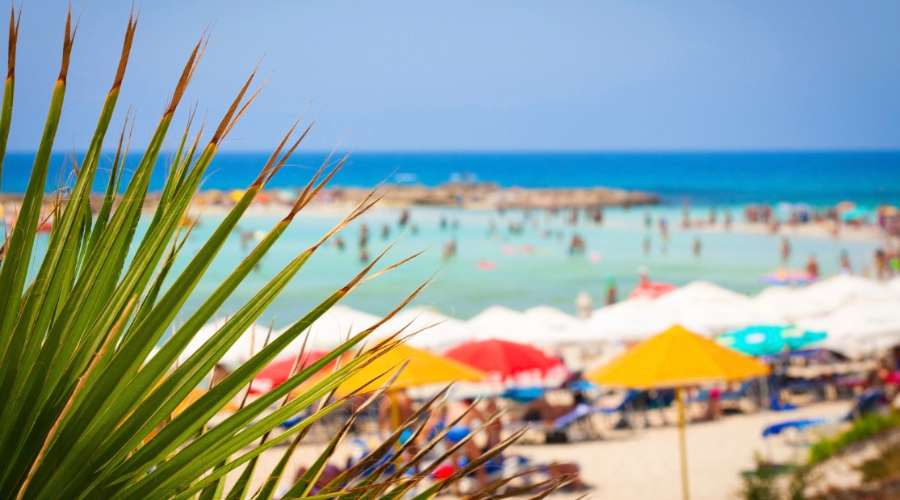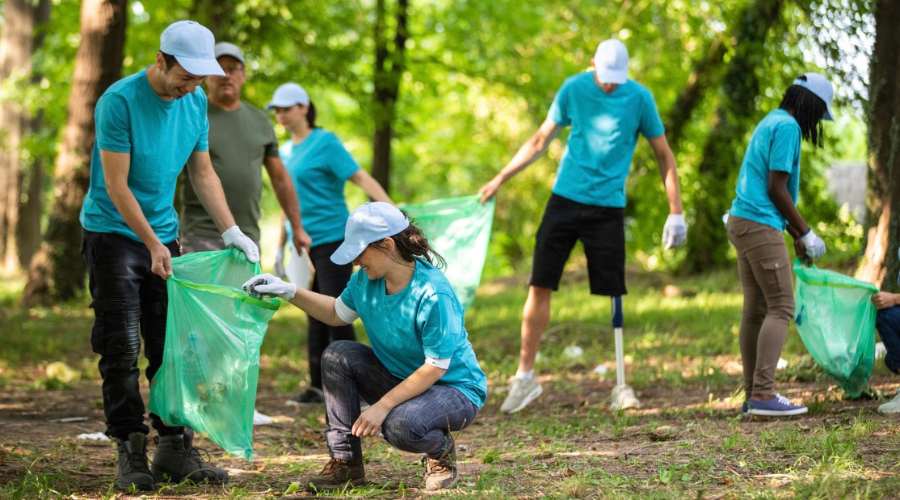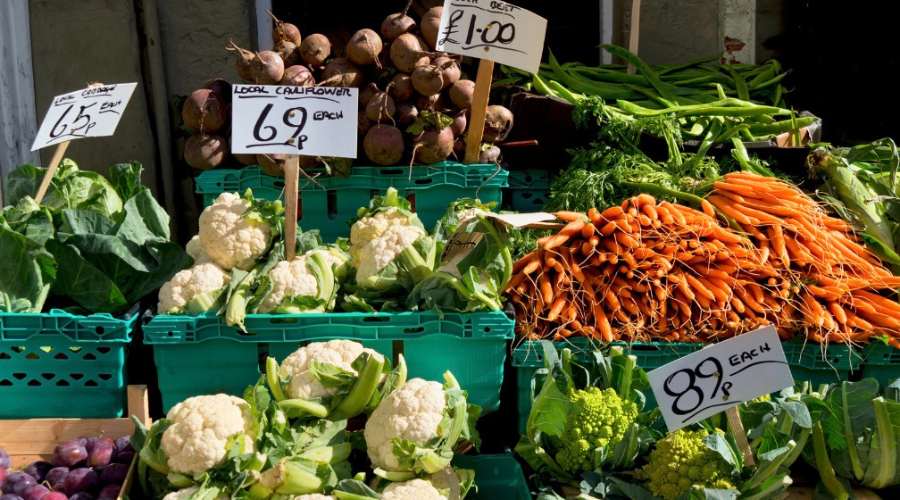Embracing Ethical Tourism: Making a Positive Impact on the World
As the world learns more about the negative impacts world travel can have, ethical travel has become increasingly important. With more travelers than ever before taking to the skies and exploring far-flung destinations, it is crucial that we strive to be responsible and conscious travelers in order to minimize our impact on the environment and local communities. To ensure a positive and sustainable travel experience for all, here are 10 ethical travel tips for responsible travelers.

10 Ways To Travel Ethically
What is Ethical Travel?
Ethical travel is the practice of traveling in a way that respects both the local environment, wildlife and the people who inhabit it. This means making conscious decisions to reduce your impact on the environment while also respecting the culture, economy, and social structure of the communities you visit. Ethical travel is all about considering how your actions will affect both your destination and the planet, then striving to make the best decision for both.
The Benefits of Ethical Travel:
Ethical travel can bring many benefits to both travelers and destinations. For travelers, ethical trips often allow for deeper connections with locals, as well as a more meaningful experience overall. Ethical trips can also provide travelers with an opportunity to learn more about their destination, helping them develop a greater appreciation and understanding of local cultures and customs. For destinations, ethical travel has the potential to create more sustainable sources of income, reduce negative environmental impacts, and preserve cultural heritage. It also ensures that the money travelers spend stays within the local community, supporting families and businesses instead of ending up in the pockets of foreign-owned corporations.
10 Ethical Travel Tips for Responsible Travelers
If you are looking for personal ways to do ethical travel right, consider all of these suggestions below and take charge of the way you travel and doing it well as a responsible traveler.
1) Check if your hotel is eco-certified
If you’re looking to travel more ethically, you’ll want to make sure you are staying in an eco-friendly hotel. The best way to do this is to check if your hotel has been certified by a reputable eco-tourism organization. Eco-certified hotels have undergone an assessment that evaluates their green practices, such as using energy-efficient appliances and environmentally-friendly cleaning products. Many of these organizations will also consider the social impact of a hotel, including how employees are treated and how much of the profits are reinvested into the local community.
When booking a hotel, make sure to look for their certification on their website or at the front desk. You can also search for certified hotels through the Global Sustainable Tourism Council’s database. Once you have verified that your hotel is eco-certified, you can rest assured that you are doing your part to help protect the environment and support local communities.
2) Explore local vegan options
Eating vegan while traveling can be a great way to ensure you’re living an ethical lifestyle. Veganism is based on the concept of abstaining from the use of animal products, including meat, dairy, eggs, and honey. By eating vegan, you’re doing your part in reducing animal suffering, preserving biodiversity, and helping to reduce carbon emissions. In addition to being beneficial for the environment and for animals, vegan food can be delicious and it’s likely that wherever you’re traveling to, there are vegan options for you to explore. Checking local restaurant menus ahead of time can give you an idea of what vegan dishes are available in the area.
If you’re heading somewhere with limited vegan options, try grocery stores or farmer’s markets as they may have more plant-based options available. You could even take the opportunity to learn a few local recipes while abroad. Trying out vegan restaurants or cooking classes can also be a great way to connect with locals, learn about new cultures, and discover vegan cuisine. No matter what kind of trip you’re taking, exploring local vegan options is an easy way to ensure you’re travelling ethically. By doing so, you can be sure that your travels have a positive impact on animals and the planet.
3) Take part in Regenerative Tourism
Regenerative tourism is a form of sustainable tourism that focuses on the conservation and restoration of local ecosystems. It seeks to use tourism as a tool for improving the environment, preserving local cultures and traditions, and giving back to the communities they visit. This type of tourism encourages travelers to take part in activities that are beneficial to the local environment, such as tree planting, beach clean-ups, and reducing their overall ecological footprint.
Regenerative tourism goes beyond simply reducing your individual impact—it seeks to give back to the environment and make a positive contribution. By taking part in regenerative tourism, travelers can help restore natural habitats and ecosystems that may have been damaged or destroyed by overdevelopment or environmental degradation. Furthermore, regenerative tourism activities can help improve the livelihoods of local communities, provide employment opportunities, and support the development of local businesses.
In order to practice regenerative tourism, travelers should make sure that their tour operators and companies adhere to best practices such as respecting the rights of local communities, using only organic and biodegradable products, and avoiding activities that could be harmful to the environment. Additionally, travelers should look for ways to offset their carbon emissions, such as supporting reforestation projects or investing in renewable energy sources.
4) Travel slow
When it comes to travel, slow is often seen as the sustainable option. Traveling slowly means that you spend more time at one place and less time hopping from one destination to another, which in turn decreases your carbon footprint by cutting back on unnecessary air travel and its associated emissions. Slow travel also allows you to really get to know the community you’re visiting. You can immerse yourself in the culture, try out the local cuisine, and get a deeper understanding of the people and places you’re visiting. Taking the time to explore and learn about the communities you’re visiting helps you to engage more with locals and become part of the community, rather than simply passing through.
You also save money by traveling slowly – with more time in one place, you can stay in budget accommodations, take advantage of deals, and really make the most of your trip without breaking the bank. Slow travel is a sustainable choice that allows you to take the time to truly explore a place, engage with the community, and minimize your environmental impact all at once. With these benefits, it’s no wonder that slow travel is growing in popularity among those looking for an ethical way to travel.
5) Travel with reusable products
Another good way to prepare for your trip is to make sure you have reusable products. Many single-use plastics are still polluting our environment, and we must do our part to reduce this waste. By bringing your own reusable products, you can help ensure a more sustainable future for our planet.
The benefits of bringing your own reusable products when traveling include reducing your carbon footprint, avoiding the use of plastic and other non-renewable materials, and ultimately contributing to a cleaner environment. Plus, you’ll be cutting down on the amount of waste you produce while you’re on the go.
Here are four reusable items that will make traveling more ethical:
- Reusable water bottle – Get yourself a stainless steel or aluminum water bottle so you can stay hydrated on the go without having to rely on disposable plastic bottles.
- Reusable coffee mug – Get a reusable coffee mug so you can get your caffeine fix without having to resort to disposable cups.
- Reusable shopping bags – Bring a few foldable reusable bags so you can avoid using single-use plastic bags when shopping.
- Reusable cutlery – Invest in a bamboo cutlery set that you can take with you wherever you go so you can avoid using disposable plastic cutlery.
6) Support wildlife sanctuaries
When it comes to ethical travel, your decisions matter. Wildlife tourism is a huge industry and unfortunately largely relies on the abuse and exploitation of animals. However, there are ethical wildlife experiences that exist, but it’s important to know the difference between unethical and ethical wildlife experiences.
Unethical wildlife tourism includes any activity that exploits animals or negatively impacts the environment. Examples of this include:
- Marine parks that keep wild SeaLife captive
- Activities that use animals for entertainment such as elephant rides or lion walks
- Animal performance shows
On the other hand, ethical wildlife tourism refers to activities that don’t exploit animals or put them in any harm. Some examples of this include:
- Visiting wildlife sanctuaries
- Volunteering at animal rescue centers,
- Joining educational wildlife tours.
By supporting ethical wildlife sanctuaries, you are helping ensure the conservation of wildlife and the environment. It is very important to research the sanctuary before visiting. Make sure that they prioritize the safety and well-being of the animals and that there is no exploitation involved. It’s also best to avoid any activities that involve physical contact with animals or that involve feeding or bathing wild animals.
Here’s a video talk about wildlife sanctuaries and conservation with habitat rehabilitation
7) Avoid over-touristed destinations
Over-tourism is one of the major issues facing the travel industry today. It can cause significant damage to the environment, social culture and economy of destinations. When tourists flood certain areas, it can put pressure on existing resources, infrastructure and services. Fortunately, there are steps you can take to reduce your impact and avoid over-tourism when you travel.
To start, research your destination ahead of time. Look into what the current population is, what local attractions are popular, and how many tourists typically visit in a given year. Doing your homework upfront can help you understand what areas may be facing over-tourism so you can plan accordingly.
In addition to researching your destination, be mindful of when and where you travel. Avoid peak tourist season as much as possible and opt for off-the-beaten-path experiences instead. You may find that less-visited locations still offer the same level of entertainment without the negative side effects of over-tourism.
Finally, take time to explore with respect and empathy. Be mindful of your actions and follow local customs, laws and regulations at all times. Your decisions as a traveler can have a profound effect on the environment and people of the destination you are visiting. Remember that tourism isn’t a right but a privilege, so always act with consideration and kindness.
8) Volunteer (responsibly) while you travel
Volunteering is a great way to explore new cultures and help others, but it can also have a major impact on local communities. That’s why it’s important to be mindful of the ethical implications when considering volunteering abroad. When seeking volunteer opportunities, look for organizations that prioritize local needs and give back to the community. It is also important to understand the local regulations and make sure the organization is compliant with laws and regulations. There are several ethical volunteer opportunities available, depending on your skills and interests. For example, you could volunteer at an animal shelter or wildlife refuge, help out with local conservation efforts, teach English, participate in cultural exchanges, provide health care services, or work with a non-profit organization.
Whichever type of volunteer work you choose, it is essential to be mindful of the impact your actions will have on the local people and environment. Respect the local culture, take part in activities that do not interfere with local traditions and customs, and ensure that you are making a positive contribution to the community.
Here’s a short video about Voluntourism and also traveling with personal growth
9) Shop local
Shopping local is one of the best ways to travel more ethically. Supporting small, local businesses help to ensure that money remains in the local community. Not only does it keep money in the community, but it also ensures that your money goes towards sustainable practices and that you can rest assured that what you are buying has not been sourced unethically.
When shopping at local markets or stores, try to talk to the vendors and ask them about their products, their practices, and where they source their products from. This will help to ensure that you are making an informed decision when shopping. Additionally, shopping local can be a great way to immerse yourself in the local culture and find unique, handmade souvenirs and items that you won’t find anywhere else. Plus, these items are usually much more affordable than items found in larger chain stores. So if you are looking for a more ethical way to purchase souvenirs during your travels, look no further than the local markets and stores.
10) Always vet tours beforehand
When it comes to ethical travel, it’s important to do your research and make sure you are going on tours with reputable companies that are doing their part to respect the environment and local culture. Before signing up for any tours, read through reviews and do some research online to make sure the company is ethical and environmentally responsible. Ask questions like: Are they helping to protect the natural environment? Are they using renewable energy sources? Are they supporting local cultures? Are they paying fair wages? Once you have done your research and found a tour provider that meets your ethical standards, you can be assured that your travels will be ethically sound.
Final thoughts and traveling around ethically around the world
Ethical travel in terms of transportation refers to making conscious choices that minimize the negative environmental and social impacts associated with transportation during your travels. It involves adopting sustainable and responsible practices to reduce carbon emissions, promote local economies, and respect local communities. Ethical transportation may involve using public transportation, walking or cycling whenever possible, opting for fuel-efficient vehicles, supporting eco-friendly transportation initiatives, and respecting the rights and customs of local communities affected by tourism. By prioritizing ethical transportation, travelers can contribute to a more sustainable and responsible tourism industry.
Guest post author Bio:
Jase is a tireless traveler who has been on the road for 7+ years. He is the founder of Roaming Vegans where he writes vegan travel and digital nomad guides. In his spare time he likes to camp, watch football and play guitar.
Conclusion to Ethical Tourism
To sum up, ethical tourism has a positive impact on both the local community and the environment, while also creating opportunities for travelers to learn about new cultures and interact with locals. By being responsible and mindful travelers, we can help build a more sustainable and fair tourism industry that benefits everyone in the long run.












Love this article! Keep it up!